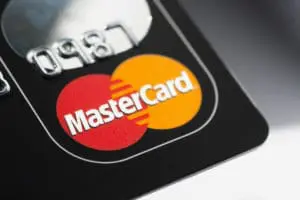Food prices at all-time high but own label items are key to keeping costs down
The Competition and Markets Authority (CMA) has just released its latest findings about the grocery sector, part of its ongoing review of the prices we pay for our food and drink.
For consumers, the picture isn’t great. Food price inflation continues to be at historically high levels, despite falling to 10.1% in October 2023. Inflation for groceries is largely driven by the rising costs of energy and fertiliser, but the CMA also found that three-quarters of branded suppliers have increased their profits – driving food price inflation even higher.
The good news for shoppers is that own label products often provide cheaper alternatives. Suppliers of own-label brands are able to take a lower profit margin in exchange for winning and retaining big-ticket contracts from retailers. Unsurprisingly, consumers are switching away from brands towards these own label alternatives to lessen the impact of high food price inflation.
Sarah Cardell, Chief Executive of the CMA, says:
‘Food price inflation has put a huge strain on household budgets, so it is vital competition issues aren’t adding to the problem. While in most cases the leading brands have raised prices more than their own cost increases, own label products are generally providing cheaper alternatives.’

More research due next year
The CMA plans to begin a review of the use of loyalty scheme pricing by supermarkets in early 2024. It will consider how the growth in loyalty scheme pricing is affecting consumers and competition in the groceries sector.
Cardell says: ‘We have also seen an increase in the use of loyalty scheme pricing by supermarkets, which means that price promotions are only available to people who sign up for loyalty cards. This raises a number of questions about the impact of loyalty scheme pricing on consumers and competition and the CMA will launch a review in January 2024.’
Baby formula to be investigated
The prices for baby formula in the UK have risen by 25% over the past two years. The CMA’s research suggests there are two reasons for this: firstly, the market is highly concentrated (just two firms have around 85% of the market share) and secondly, branded suppliers have put their prices up by more than their costs have increased.
This means that these brands have maintained high profit margins over the last two years – at the expense of the consumer.
The CMA shows that by switching to cheaper baby formula options, families could make savings of more than £500 over the first year of a baby’s life. However, there is little evidence of parents switching to cheaper branded options as prices have risen.
‘The picture is different when it comes to baby formula, with little evidence that people are switching to cheaper products and limited own label alternatives,’ says Cardell.
‘We’re concerned that parents may not always have the right information to make informed choices and that suppliers may not have strong incentives to offer infant formula at competitive prices. We will investigate this further and consider whether changes to regulations are necessary to ensure parents can get the best deal possible.’
An update on the CMA’s work into baby formula will be published in mid-2024.
Related claims

Steam
Valve Corporation – who owns gaming platform Steam – is accused in £656m compensation lawsuit of blocking competition and overcharging 14m UK consumers.

Sony Playstation
8.9m Playstation customers may have overpaid for games or in-app purchases and be owed hundreds of pounds in compensation. Sign up here for more information.

Mastercard
Mastercard is accused of owing up to £10bn to 46m UK shoppers. Sign up to stay updated – you could be owed money whether you had a Mastercard or not.


